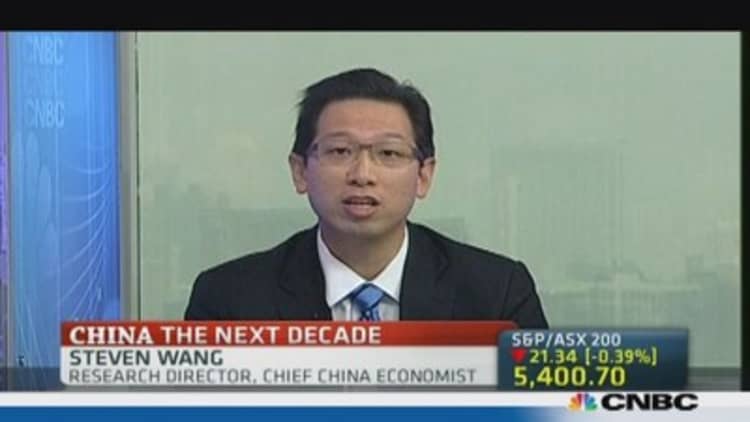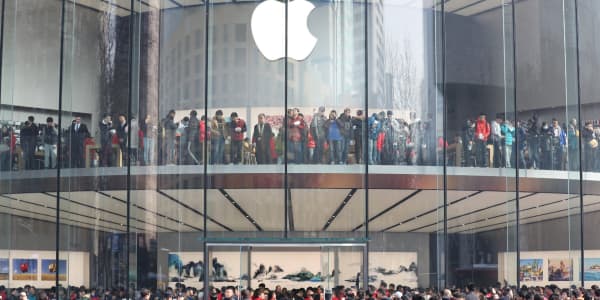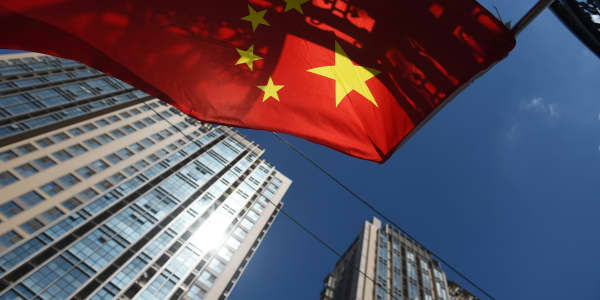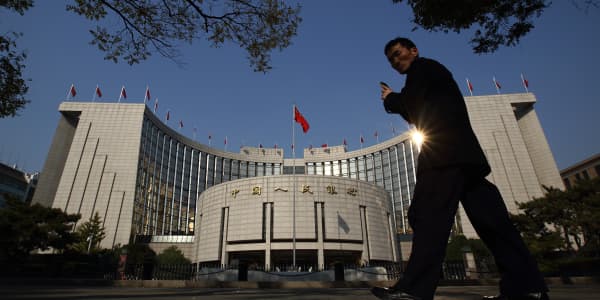With China expected to unveil some of its biggest economic reforms for 35 years following a meeting of its ruling Communist Party, many analysts have speculated that the price of gold could benefit from this weekend's summit.
Spot gold sat at $1,309 an ounce Friday afternoon, after taking a hit Thursday after a better-than-expected U.S. growth figure. It's down over 21 percent so far this year and 31 percent lower for its peak in September 2011. The precious metal could be considered to be in a long-term bear market -- but analysts point to healthy Asian demand as reason for optimism.
"Meaningful reform will be painful and disruptive, and I suspect a lot of Chinese will seek the perceived safety and portability of gold," Patrick Chovanec, the managing director and chief strategist at Silvercrest Asset Management told CNBC.
(Read More: Five things you should know about China's Plenum)
"That will be particularly true if the bubble in China's property market pops. For the Chinese, buying and stockpiling empty properties serves much the same function as investing in gold, since they are both unproductive stores of value, so if real estate sees a major correction, many Chinese will turn to gold."
The Third Plenum of the Communist Party is expected to delve into issue of urbanization. Land ownership reforms are likely to be met with a surge in social housing but a property market tax is also being touted, hoping to reduce the chance of any housing bubbles.
"The expansion of the property tax may make people less willing to invest in property and gold would be an obvious alternative," Miranda Carr, head of China Research at North Square Blue Oak tod CNBC.
Adrian Ash, head of research at online gold exchange BullionVault told CNBC that if Beijing dares to prick house prices, gold sales going into the Chinese New Year could very well show how successful such moves are.
"Localized attempts to cool real estate prices certainly haven't hurt gold demand in the past," he said.
(Read more: China's big moment – here are the commodities set to benefit)
Traditionally used as an inflation hedge, the spot price for gold steadily rose during the economic crisis of the last five years. With extra liquidity from central banks - and subsequent fears of inflation - the price skyrocketed further.
This came to an end last year. Gold prices no longer reacted to policy announcements from the U.S. Federal Reserve, and now with indications that this extra liquidity will now be "tapered" prices have fallen. For many analysts, the paper price - the cost of gold contracts - has now become decoupled from its actual physical price.

Martin Arnold, a senior analyst at ETF Securities is one of many gold-watchers that sees demand from Asia still holding up, with households across southeast Asia and India still seeing precious metals as the first choice as they start building discretionary savings for the first time.
"We expect the physical demand to remain robust as any uncertainty over the reform process from Chinese citizens (and a limited investment choice) is likely to be channeled back into gold, which is a traditional store of wealth in Asian countries," he told CNBC.
(Read more: As plenum looms, China's big challenge is a balancing act)
However, even if gold finds a friend in China in the coming months, then a much bigger reform could put downside pressure on it in the longer term. Announcements this weekend regarding the expansion and liberalization of China's capital markets will mean people will be able to diversify in the future.
"If there are any problems in China, people take money and invest it overseas rather than just putting it in gold," Carr told CNBC.
China's finance industry remains under-developed, according to BullionVault's Ash. Exchange controls also make gold, like real estate, a stand-out escape from cash deposit accounts paying less than inflation, he said.
"While no-one expects sudden freedoms to invest overseas, broader deregulation may, over time, give savers more options," he said.
By CNBC.com's Matt Clinch. Follow him on Twitter @mattclinch81





